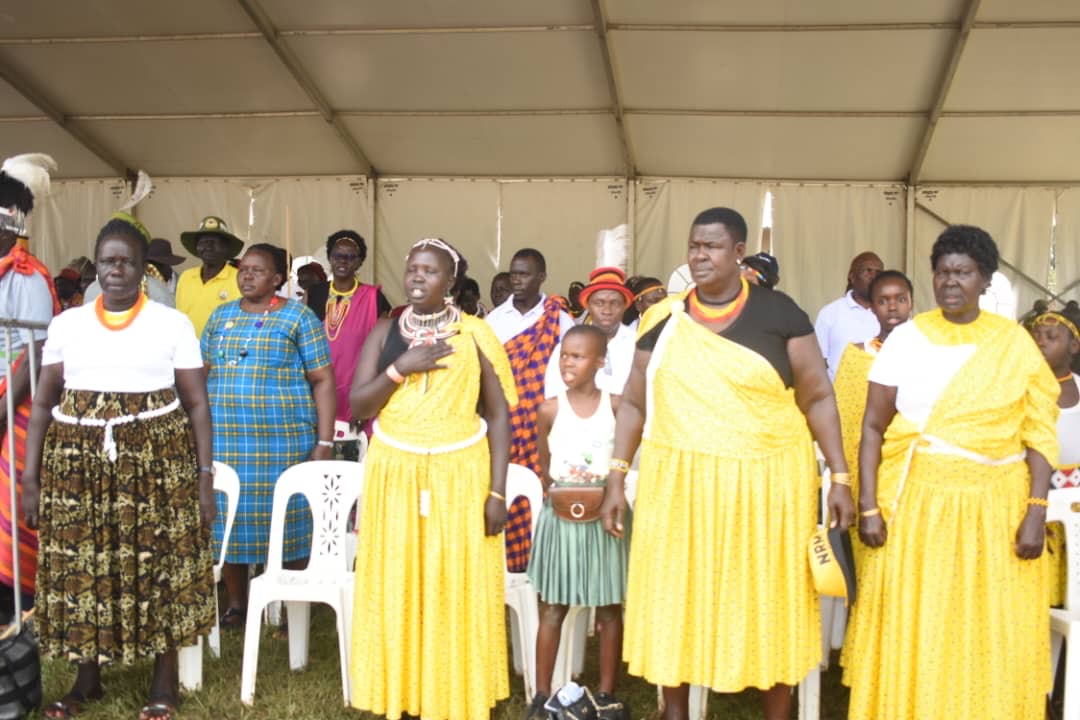
By Richard Onapatum
In the sweeping plains of Karamoja, where tradition pulses through dance, song, and storytelling, the Karamoja Cultural Festival 2025 unfolded as a vibrant celebration of identity, unity, and resilience. Held from September 8–13 at Old Nakapiripirit Primary School, the week was marked by unseasonal downpours that turned the grounds to mud, yet festival activities pressed on under tents and makeshift shelters.
No group embodied this spirit of perseverance more powerfully than the Nakere Rural Women Activists (NARWOA). Their tent became a beacon amid the rain, showcasing how culture and empowerment flourish even when the skies open up.
The Karamoja Cultural Festival is an annual gathering of Ateker peoples and others, to celebrate traditions and foster cross-border peace. Highlights included:
This year added a “One Night in Marble City” concert in Moroto, hikes up Mount Kadam, and visits to Pian Upe Wildlife Reserve. Beneath the festivities lay a deeper purpose: dialogue, advocacy, and community-driven development.
Girls at the Center: NARWOA’s GIRL-H Impact
At the heart of the festival grounds, NARWOA’s tent buzzed with energy and purpose. Through the GIRL-H Project (Girls Improving Resilience through Livelihoods and Health) for youth—funded by Mercy Corps—the organization empowered adolescent girls with:
Girls from across Karamoja huddled under tarpaulins when the rain fell, yet they dove into storytelling, role-plays, and interactive discussions with undiminished enthusiasm. They spoke about menstruation without shame, learned how to budget small incomes, and planted
saplings as symbols of growth and resilience.
“Before this, I never imagined I could earn money or speak in public. Now, even in the rain, make shoes and mentor others on financial discipline,” said Denis Nadit Lokidi from Nakwakwa, Kotido.
One of NARWOA’s most compelling exhibits was the showcase of practical skills. Girls proudly displayed:
These installations weren’t just artistic—they were entrepreneurial. Many girls shared how their newly acquired craftsmanship earns income to support siblings or save for school fees, rain or shine.
Leadership That Listens: Voices from the Festival
The festival drew high-level leaders who praised NARWOA’s work and the GIRL-H initiative.
Hon. Peace Mutuuzo, Minister of State for Gender, Labour and Social Development (Culture), served as Guest of Honour:
“Culture is the soul of a people. The work being done by organizations like NARWOA is a testament to what community-led empowerment can achieve.”
Karamoja is not just a region of resilience—it is a region of opportunity. Let us use culture to build bridges and foster unity, especially for our girls and women.”
Karamoja Affairs Minister Peter Lokeris reflected on peace:
“The Karamoja Cultural Event remains a pillar of our unity. This festival reminds us of our shared destiny as Ateker people.”
“I’ve watched these girls grow into leaders,” said Mr. Lokat, a Karimojong elder. “Their confidence today inspires our whole community.”
A Bold Appeal: Jesca Ruth Ataa Demands Access
During a high-level stakeholder meeting held alongside the festival, Jesca Ruth Ataa, the Executive Director of NARWOA, delivered an impassioned plea for direct access to national leadership.
“Women in Karamoja have real issues. We need space to speak, and we need access to the President so we can share these concerns ourselves.”
She condemned bureaucratic barriers that often silence grassroots voices:
“Each time you want to meet the President, they say ‘protocol.’ What is protocol when women are suffering in silence? We are not asking for favors—we are asking to be heard.”
Her words sparked applause and reflection, reminding attendees that inclusive governance demands direct engagement with those most affected by policy decisions.
The Karamoja Cultural Festival was more than a cultural showcase—it was a catalyst for change. Under NARWOA’s leadership, the voices of girls and women rang clear and strong despite rain-soaked grounds. They danced, debated, and demonstrated tailoring and shoemaking.